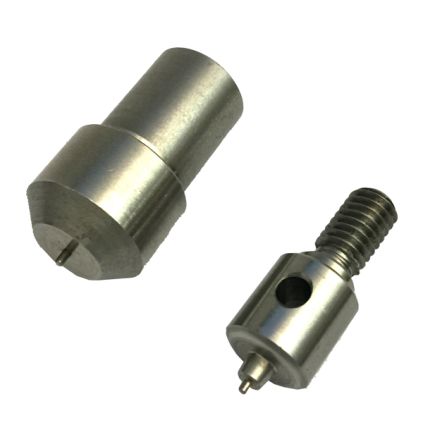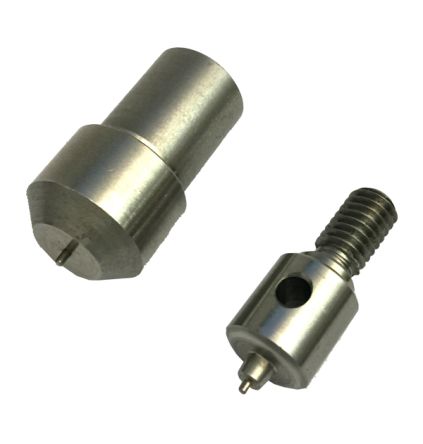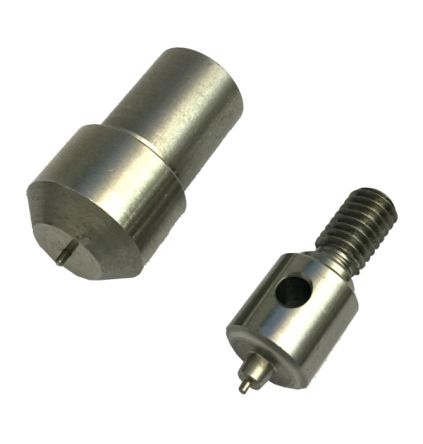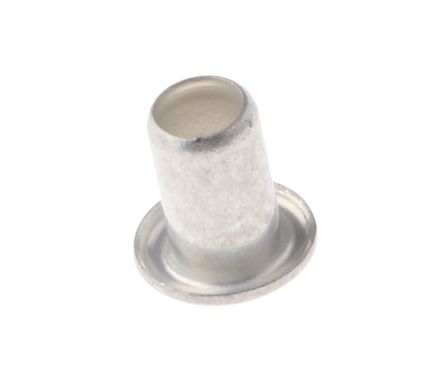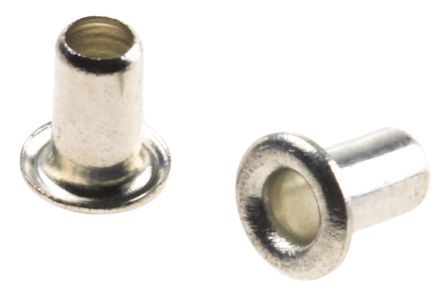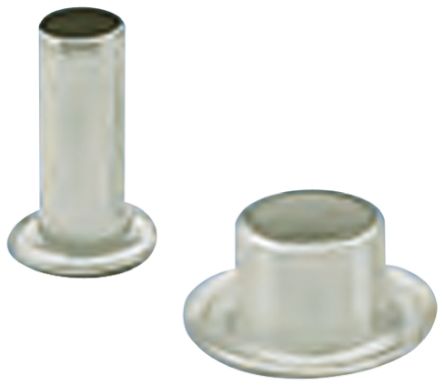- Automation & Control Gear
- Cables & Wires
- Enclosures & Server Racks
- Fuses & Circuit Breakers
- HVAC, Fans & Thermal Management
- Lighting
- Relays & Signal Conditioning
- Switches
- Batteries & Chargers
- Connectors
- Displays & Optoelectronics
- ESD Control, Cleanroom & PCB Prototyping
- Passive Components
- Power Supplies & Transformers
- Raspberry Pi, Arduino, ROCK, STEM Education & Development Tools
- Semiconductors
PCB Rivets & Riveting Tools
PCB rivets are used to fasten terminals to a circuit board. They have a smooth, hollow cylindrical shaft, with a rolled eyelet head on one end. They're commonly made from metals such as brass with an electro plating in tin.
How do PCB rivets work?
PCB rivets are secured into the circuit board using a rivet insertion tool. They're placed in a punched or drilled hole and the opposite end to the head (the tail), is bucked. This process holds the rivet in place as it creates a new 'head' on the other end by hammering the 'tail' material flatter. This results in a rivet that is more of a dumbbell shape. The two different ends are then distinguished by the original head being called the f'actory head', and the new end is called the 'shop head' or 'buck-tail'.
How to choose the right PCB rivets
PCB rivets are available in a range of lengths and diameters to suit different holes. There are different types of PCB rivets, such as turret tag or wide eye rollout. Turret tag rivets are longer in length, whereas wide eye rollout are for shallow holes.
